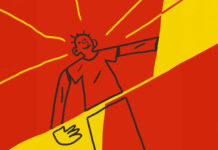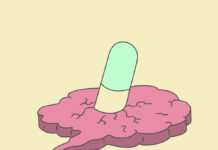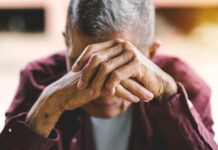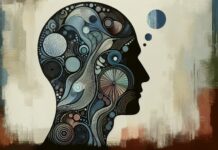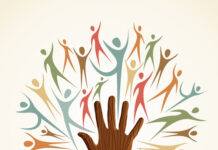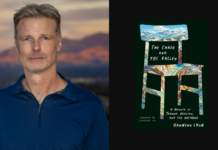Researchers Accuse Lancet Article and British Psychiatrists of Minimising Antidepressants’ Withdrawal Effects
A response to a seriously flawed review.
How to Be a Happy, Successful Incurable Schizophrenic
If you are a young schizophrenic, I encourage you to accept the challenge of leading a happy, productive, meaningful life.
ADHD Drugs Linked to Psychosis and Mania
In one analysis, those on a high dose of prescription amphetamines were more than 13 times more likely to develop psychosis/mania.
Faith Healing in India: An Ancient Way of Tending to Madness
In contrast to the colonial legacy of medical psychiatry in India, indigenous and faith healing methods emphasize the interconnectedness of the mind, body, and spirit, using rituals, storytelling, and communal support to create a holistic healing environment.
On Not Becoming David Foster Wallace
I didn't know Wallace was a poster boy for antidepressant withdrawal because I didn't know that antidepressant withdrawal was common, or that I would be experiencing it myself.
The Long-Disputed Science of Twin Studies
Twin studies and heritability estimates are used in support of biological determinism and in defense of the global inequality status quo.
STAR*D: The Harms of Orchestrated Psychiatric Fraud
STAR*D’s results are too bitter a pill for psychiatric leaders to swallow, so they have chosen to become a rogue medical specialty.
Antidepressant Withdrawal: A Psychiatrist’s 30-Year Challenge to Conventional Wisdom
For thirty years, Dr. Giovanni Fava has sounded the alarm on the long-term effects of antidepressants and the risks of withdrawal, pushing back against pharmaceutical narratives.
Human Suffering as Numbers and Graphs: The Problem with Measuring Outcomes in Therapy
Outcome monitoring is a product of bureaucratic healthcare: Human suffering reduced to efficiency optimization.
Antidepressant Withdrawal Commonly Misdiagnosed as “Mental Illness”
A new study reveals that more than two-thirds of patients experiencing antidepressant withdrawal were misdiagnosed with psychiatric disorders.
MindFreedom’s Shield Program: Working to Free People from Psychiatric Incarceration and Forced Treatment
“We need the MindFreedom Shield to have someone in our corner when we are told that it doesn't matter what we want, that someone else can make a choice about our bodies that we will have to live with for the rest of our lives.”
Human
God-like, they assured me they knew what was wrong with me and had the elixir. But their elixir was a poison.
Elder Eyes Wide Shut
There is no universal moral code: Elder law and the injustice and inhumane practice of legal guardianship are a calculated effort by the court, the attorneys, and the healthcare system.
Do Depression Pills Improve Quality of Life?
In the upside-down world of psychiatry, the pills that destroy your sex life are called happy pills. I call them unhappy pills or anti-sex pills.
What I’ve Learned about Tapering Psychiatric Drugs—A Holistic Therapist’s Perspective
Liberation from pharmaceuticals is possible, but it is not an easy journey. I advocate for informed consent.
Antidepressants Overprescribed to Post-Menopausal Women Despite Risks
A new study reveals that antidepressants, commonly prescribed to post-menopausal women, may increase risks of falls, cognitive decline, and cardiovascular issues, raising questions about their overuse in this population.
The Iatrogenic Gaze: How We Forgot That Psychiatry Could Be Harmful
The victims of psychiatric iatrogenesis believed they were taking a vitamin, only to later realize it was poison.
Recovery from Psychosis in Schizophrenia Spectrum Disorder Is Possible
The biggest injustice done to a person with such a diagnosis is to give up on them for the rest of their life.
Working to Transmute the Pain: Why I Do the Work I Do
I sought help and followed the prescribed path. About twenty years later, I began to question, "What is happening? Why am I still stuck?"
The Path from Trauma to The Power of Nature: An Interview with Banning Lyon
Our guest today is Banning Lyon, author of The Chair and The Valley: A Memoir of Trauma, Healing, and The Outdoors. An account of...
Modern Psychiatry and the Human Soul and Spirit: Is Our Freedom at Stake?
The medications are there to disconnect us from our divine, creative Self, but the human being is remarkable and incredibly resilient.
That Others May Live: An Airman’s Mental Health and Medication Hurricane
“These things we do, so others may live.” It took a small army of my brothers and sisters in and out of uniform to drag me out of my abyss.
Flying While Depressed? The FAA’s Troubling New Antidepressant Standards
The FAA should reconsider the policy on drugs that are ineffective for depression and increase the risk of suicidality and violence.
Multiplicity and Mad Studies: An Interview with Jazmine Russell
In this interview, Jazmine Russell describes her journey through psychosis and mental health advocacy to embracing a multiplicity of frameworks in Mad Studies.
Mishiguene
From my grandmother I learned about mishiguene, which means crazy in that ironic and funny tone that Yiddish can have in some families.


